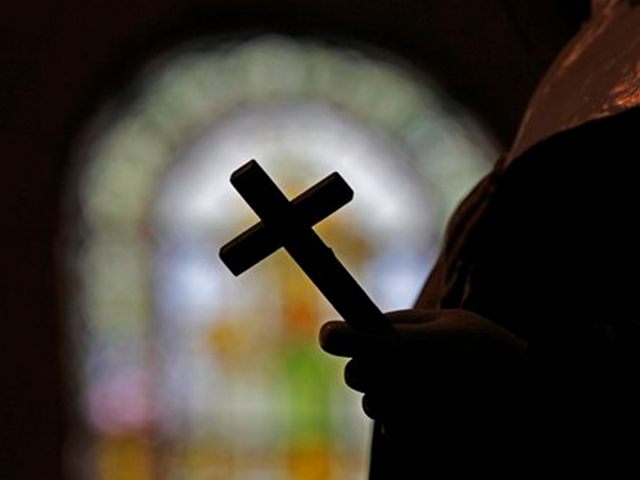JACKSON, Miss. (AP) — Mississippi’s governor signed a law Tuesday that allows religious groups and some private businesses to refuse service to lesbian, gay, bisexual and transgender people based on religious beliefs.
Republican Gov. Phil Bryant signed the bill without ceremony just hours after it cleared its final legislative obstacle Monday, and before opponents could try to talk him out of it. In addition to opposition from gay-rights activists, two leading state business associations and a number of large corporations had come out against the bill in recent days.
It was unclear whether opponents would continue to marshal their forces in an attempt to repeal the measure as they are doing in North Carolina, however, where the Republican governor signed a law limiting bathroom options for transgender people and prohibiting local communities from enacting anti-discrimination ordinances. The Mississippi law also prohibits local communities from passing their own ordinances. The law is slated to take effect on July 1.
“We’re still gathering troops,” said Erik Fleming, director of advocacy and policy for the American Civil Liberties Union of Mississippi. “We’re disappointed. We were hoping that the business community stepping up the way they did, and people of faith, would at least have him reflect on the decision.”
Republican Georgia Gov. Nathan Deal vetoed a similar religious objections bill last week after big companies including Coca-Cola, Delta Airlines and others expressed vehement opposition, and national sports organizations hinted that they might hold their important events elsewhere. In North Carolina, an economic backlash broadened Tuesday, with PayPal announcing it has canceled a major expansion in the state. South Dakota’s governor vetoed a similar proposal limiting bathroom options for transgender people.
Such measures began emerging in various states in response to a U.S. Supreme Court decision last summer that effectively legalized gay marriage nationwide.
Bryant said in a statement that he signed House Bill 1523 because he wanted to protect “sincerely held religious beliefs and moral convictions of individuals, organizations and private associations from discriminatory action by state government or its political subdivisions.”
Rep. Andy Gipson, R-Braxton, a lawyer and Southern Baptist minister who shepherded the measure through the House, said under the law, “people can not only believe what they believe, but act in accordance with their beliefs and not violate their conscience.”
Opponents of the law, however, see it as a sword against LGBT people, not a shield for Christian conservatives.
“This bill flies in the face of the basic American principles of fairness, justice and equality and will not protect anyone’s religious liberty,” Jennifer Riley-Collins, executive director of the American Civil Liberties Union of Mississippi, said in a statement. “Far from protecting anyone from ‘government discrimination’ as the bill claims, it is an attack on the citizens of our state, and it will serve as the Magnolia State’s badge of shame.”
The law’s stated intention is to protect those who believe that marriage should be between one man and one woman, that sexual relations should only take place inside such marriages, and that male and female genders are unchangeable.
“I think if you read it, you understand it’s a religious freedoms bill,” said House Speaker Philip Gunn, R-Clinton, the bill’s primary author.
The law would, for example, allow a church group to decline housing or adoption services to gay couples. A hotel could refuse to rent a ballroom for a same-sex marriage and a jeweler could refuse to sell rings to a gay couple. Any employer or school could refuse to allow a transgender person to use the bathroom of their choice.
Among government employees, individual clerks could refuse to issue marriage licenses and judges could refuse to marry gay couples. In both cases, governments are supposed to take steps to make sure that the license and marriage are “not impeded or delayed,” although it was not clear how that would work if all clerks or judges in a county filed paperwork to opt out.
“This bill does not limit any constitutionally protected rights or actions of any citizen of this state under federal or state laws,” Bryant said. “It does not attempt to challenge federal laws, even those which are in conflict with the Mississippi Constitution, as the Legislature recognizes the prominence of federal law in such limited circumstances.”

COMMENTS
Please let us know if you're having issues with commenting.